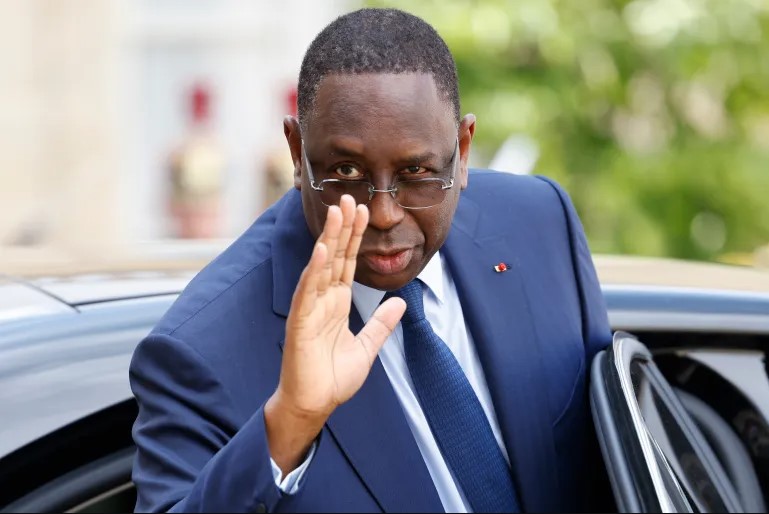What’s Happening
Senegalese President Macky Sall has stated that the nation will hold Presidential elections “before the rainy season”, which in Senegal takes place in June. However, no specific date has been set, something which has received staunch criticism from opposition leaders in Senegal. Originally, the elections were due for February 25th, but were delayed by the government.
Besides the election date itself, there are a number of other uncertainties surrounding the Senegalese election. These uncertainties have expanded as President Sall has announced he is putting forward an ‘amnesty’ bill to the Senegalese parliament for lawmakers to consider passing.

The amnesty bill would see hundreds of people freed from prison that have been arrested during protests since 2021, including those recently arrested during protests against the delay of the election.
Notedly, the amnesty bill could also see opposition leader Ousmane Sonko released from prison. This comes after President Sall last week in an interview said he “wasn’t opposed” to Sonko’s release, however the President’s office later neglected to respond when asked for clarification.
Regardless if the amnesty bill passes, there is no guarantee that Sonko would be released through it, though the possibility certainly exists.
Why the Delays..?
On February 5th the Senegalese ruling party voted to postpone the February 25th election, pending a parliamentary inquiry into the independence of two of the judges of the Constitutional Court which had determined two key opposition leaders, Ousmane Sonko and Karim Wade, ineligible to run for the Presidency.
The vote was held under questionable circumstances, with many opposition politicians being escorted out of parliament by Senegalese police.
??| Senegalese parliament votes to postpone elections with forced evacuation of opposition MPs
Honestly, the situation seems to be deteriorating to such an extent that there's a risk of major instability ahead.#Senegal https://t.co/TQagTgIKhD pic.twitter.com/bTQJmOGYDc
— Casus Belli (@casusbellii) February 5, 2024
The government stated the delay was in the interest of holding “an open national dialogue to bring together the conditions for a free, transparent, and inclusive election”, to potentially see the two candidates, more so Karim Wade, included in the candidates list of 20 Presidential candidates.
After almost two weeks of protests against the delays, Senegal’s Constitutional Court on February 15th ruled the delay as “unconstitutional”, and stated that while holding the election on February 25th as originally planned would be “impossible”, they ordered President Sall to hold the elections “as soon as possible”.
President Sall has conceded to the court, and while he has vowed to hold the election “as soon as possible”, he has yet to provide any timeline for when the election may take place except for before the rainy season. President Sall’s term is due to end on April 2nd, and the Constitutional Court has ruled that President Sall will not be able to remain in office after his term end. The President has agreed to step down after his term is over.
Ousmane Sonko, thought to be the largest threat to the ruling party, was denied following the upholding of Sonko’s conviction for defamation by the nations’ supreme court on January 4th. The conviction took place initially in March of 2023, where Sonko was handed a two month suspended sentence for the ‘defamation’ of Senegalese Tourism Minister Mame Mbaye Niang, who he had accused of embezzlement. In May, the sentence was extended to six months. While Sonko and his legal team sought to challenge the conviction, it was upheld on January 4th, 2024, which the Constitutional Council said made him ineligible for the Presidential race under Senegalese law.

Karim Wade, the son of former President Abdoulaye Wade, was denied candidacy due to his dual citizenship. Karim has been heavily involved in Senegalese politics over the years, holding several high level positions, in particular under his fathers Presidency. However, he was born in France, and thus holds dual citizenship between France and Senegal.
After Sonko was denied candidacy in the election, he named Bassirou Diomaye Diakhar Faye as his successor for the position. While Bassirou was included in the list of 20 candidates, there is one small problem. Bassirou has been in provisional detention since April of 2023, and remains so even after his candidacy was approved. Sonko called for Bassirou’s release, citing a portion of the Senegalese constitution which guarantees equal campaigning opportunities for candidates in the Presidential elections.
Bassirou has experienced a similar level of popularity to Sonko, and is a key contender to the election.
A Question Unanswered
While the election is no longer delayed for ten months, the core issue of the disputed candidates list remains. Missing from any of the government and court announcements on the election timeline changes was whether or not they will be still using the list which barred the two candidates, or creating a new list.
Though the government stated their intention with delaying the vote was to try and hold an “inclusive election”, many opposition powers have accused President Macky Sall and the ruling party of attempting to hold on to power as long as possible, and delay an election they fear losing. President Sall is not running for a third term, and Prime Minister Amadou Ba is succeeding him as the candidate for the Alliance for the Republic party.
A Symbolic Vote
On February 25th, the original date for the Senegalese Presidential election, several opposition candidates gathered and held a mock vote in order to protest the delays in the election.
Candidates cast their fake ballots into a box that was labelled “RIP 25 February”.
The opposition candidates symbolic vote on the same day that civilian groups headed their own protest, a march, despite it having been banned by the government.


